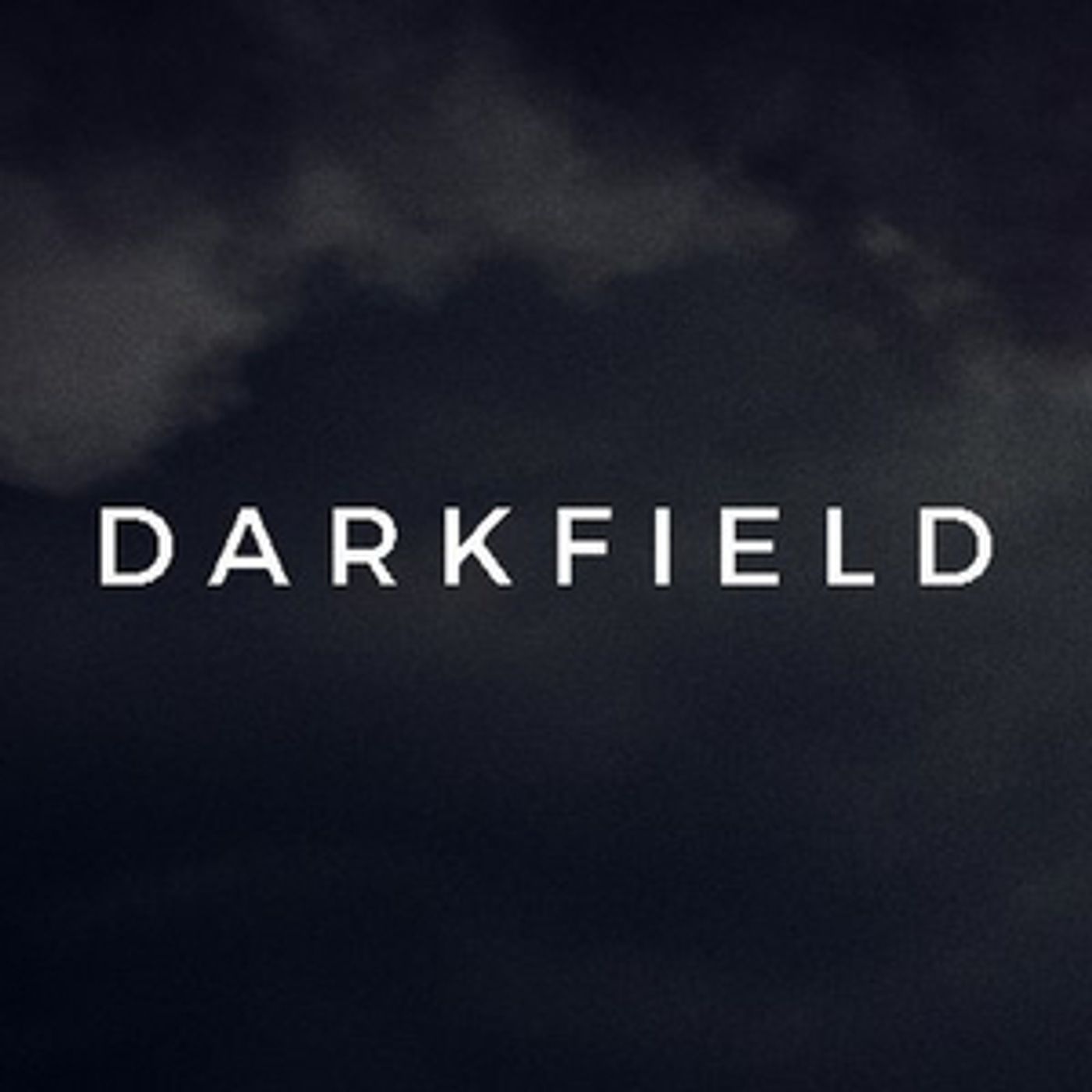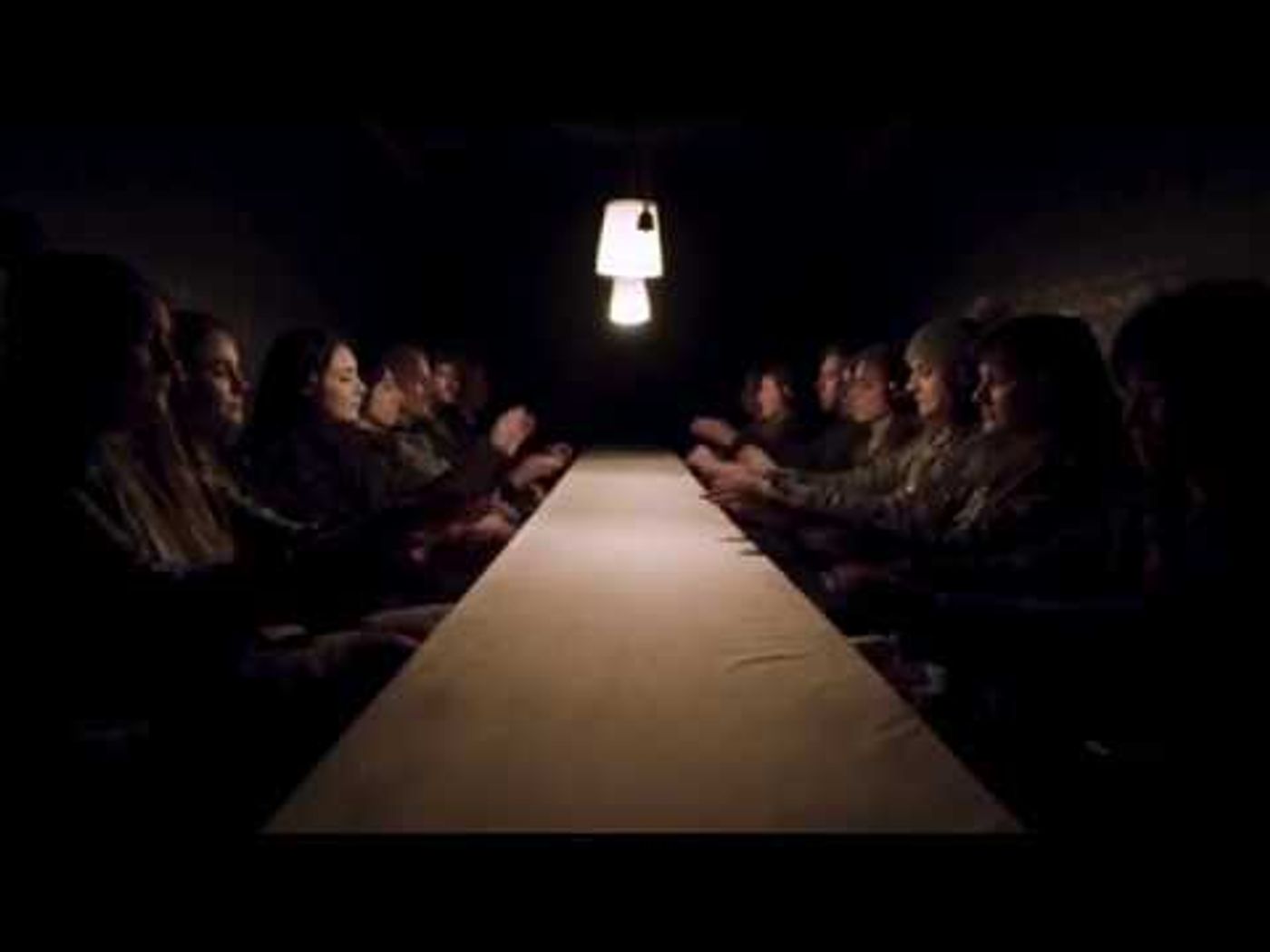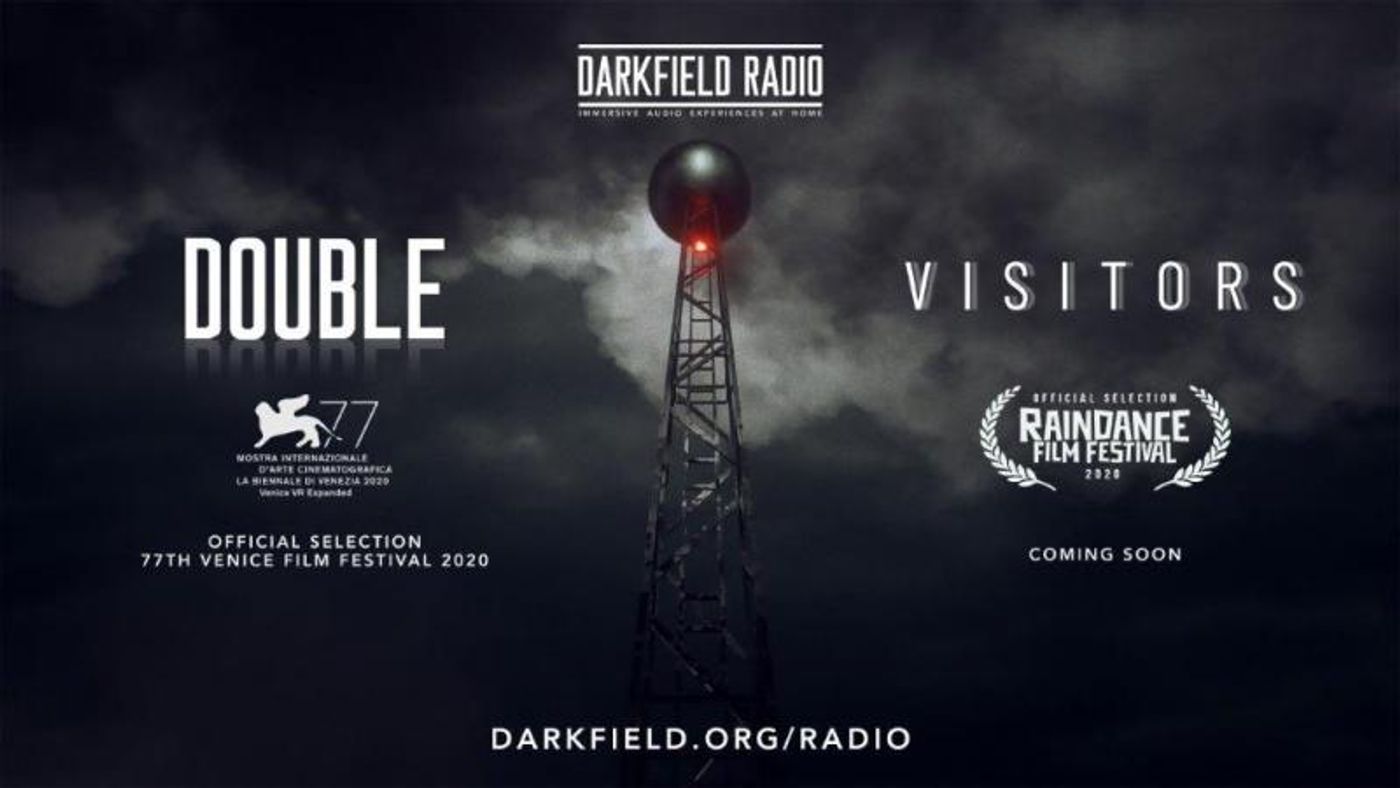Interview: Glen Neath Talks Darkfield's Immersive Audio Experiences
You can enjoy VISITORS and DOUBLE from the comfort of your own home

Darkfield is a renowned British immersive theatre company, with an emphasis on binaural sound and sensory effects. As a response to the current climate, Darkfield Radio has been developed as a new project which delivers immersive audio experiences to audiences at home. It uses a phone app that offers people a simple way to participate in timed events, creating a sense of communal experience.
Visitors, Darkfield Radio's latest presentation, and Double are broadcast weekly on Tuesday, Friday and Saturday, culminating in seasonal double bill on Friday 30 and Saturday 31 October. We spoke to Darkfield's Glen Neath about the project.
Could you tell us a bit about yourself and how you got into theatre?
I'm one of the co-founders and artistic directors of Darkfield. I've been working with David Rosenberg since 2011, for nearly ten years. We've made two shows before we formed Darkfield for theatres. They were longer shows, which toured to many venues. We thought that there were some things that weren't working as well as they could do with our shows, because they were moving to different-sized theatres and had disparity in the sound depending on the space. Sometimes, it made the sound feel as if it wasn't happening in the room you were in. We wanted to address that.
So, we decided to create our own space, and we made our first show Séance in 2016 in a shipping container. We made Flight and Coma, and We have a fourth one Eulogy, which we're trying to get out as soon as possible.
Can you tell us more about Darkfield? How did it come to be?
David had been working with binaural sounds prior to working with me. He'd done some shows with a choreographer, which placed the audience members in distanced spaces so they were listening to tracks of rooms they were looking at, but it was all in the light. We started to speak about working together with the idea that we would do the show in complete darkness. I've made a few shows that used headphones and instructions for audiences and unrehearsed performances, so we had shared interests.
.jpg?format=auto&width=1400)
We had some ideas we wanted to explore. One of the decisions was made very early on was to hide the technology. We wanted to play with the idea of the audience in the room they were sitting in and how we could involve them in the performance, so that they, as an audience member, would feel as if they were the protagonist in the story or somehow central to the narrative.
The shows are all immersive experiences, and with Darkfield Radio, people can enjoy it from their own home. Do you think this is the future of theatre?
Well, I hope not. I'm presuming we would go back to normal soon. There is always a worry that once you stop doing something, even if you love it, you forget the habit of doing it and you never do it again. The Darkfield Radio shows that we've made, it was sort of a response to the lockdown, but we've been thinking about this type of show before it happened. This just quickened it. We hastened our approach and made these shows for radio platforms.
We want to continue to use that - it's an interesting work - but we don't want it to be the only way. I'm hoping we're going to come back to some sort of normalcy soon and get back together again. We had our press night for Visitors and we did it from our homes, and it's just not the same. I want to be there and see all the people. You can't know how it's going because you can't see people.
I'm really pleased with the way we've pivoted our business model to work with this new platform, which allowed us to do the show with people from their homes. We really wanted to respond to the new situation and do something that took on all of those new circumstances. So, the shows are very much about you and your house, and there's this narrative fiction that is going around you.
The themes tackled are very dark and oppressing. Why did you want to focus on these kinds of topics?
For the first two shows, which were much longer, we weren't trying to frighten anybody - we made a conscious effort to not make it about frightening people - but people were frightened because they were sitting in compete darkness for 50 minutes, and that's quite nerve-wracking. For these container shows, we wanted to explore that idea of fear and anxiety, by making them much shorter and more intense.

The technology we're using and the situation we set up worked very well with that kind of genre. It's not horror, but it's about exploring consciousness, and it's all about that threshold between what is real and what you think is not real. All the shows play around that and it fits the form.
With Double and Visitors, you had to think about the fact that we can't control the environment in the same way - we can't turn the light off, we're kind of handing these responsibilities to the audience. We had to really think about how we get them to close their eyes, how we make them be part of the narrative in some ways.
Do you think these themes should be explored more in theatre?
That's the thing: the technology we use is very specific and is very good at making people feel like it's an experience. You can whisper in every audience member's ear at the same time. It seems like you can feel the breath on your face, and that's very specific to the technology. I think it's really interesting to play with this idea of audience and space, and the space between reality and fiction.
The way we're making it is very suited to the genre, and I'm not necessarily sure it would work in every situation. This suits our technology. We don't write plays the same way. We come up with an idea and we try to figure out what the narrative could be around. We knew that everybody would know they're not in an airplane, but we can make them feel as if they were. We did a lot of reading about parallel universes and multi-universes for that show. It's often abstract ideas that we are interested in and that we share around.
What do you want people to get out of it?
That's a difficult question to answer. For me, I'm always very interested in form. If there's been any criticisms of the show, it's been about the fact that there's no story to it, which I don't really feel is something I'm very interested in. In order to keep all our audience member in the moment, this feels like a story is a bit of a distraction, as we want to explore forms and those philosophical ideas.

I enjoy being confused. I really enjoy art when I don't know everything about what's happening. I like to have questions rather than answers, I suppose. I want people to have not only an intellectual experience, but also a physical one. Having people feel like they're in something rather than just looking at something.
What has been your favourite part about creating this?
Just working with David, it's such a joy. It's totally collaborative. I can't even tell you who came up with the idea for the show; we explore things together. That's my favourite thing about it. And just the general reception that we've had - it's very exciting. We've started to expand a bit to VR and XR, and that was really rewarding. To have some recognition for what you're doing.
Do you have any plans for new shows like this?
We have a new one, entitled Eternal, which is opening at the Bram Stoker Festival in Dublin at the end of the month, for Halloween. That will be on our radio platform a month later. We can access it via their website. We also have another show called Eulogy, which we were making when lockdown happened and we finished it during it. We're keen to get that out and we're looking for somewhere to put it on.
This wasn't a plan, but it was something we were doing and happened to fit very well with the current situation. We made it so you can take the set out of the container and put it in another space, which is the first time we've done that. So, we could put it inside a theatre building and explore the possibilities of doing that.
Find out more about Darkfield here
Videos

